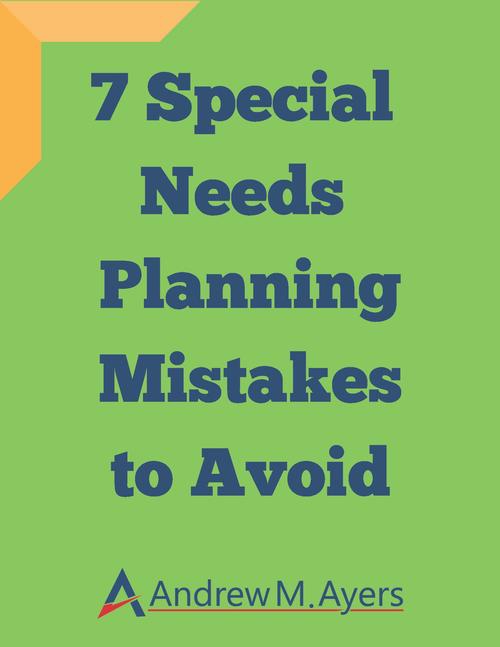 When you are working on special needs planning for your children in Minnesota, there can be a variety of options available to you. The primary estate planning vehicle that most people use is called a special needs trust, which is a specific type of trust that is designed to make sure your child does not lose their government benefits. It's a generalized term, and there are specific types of special needs trust that you and your family can use. The three most common types are:
When you are working on special needs planning for your children in Minnesota, there can be a variety of options available to you. The primary estate planning vehicle that most people use is called a special needs trust, which is a specific type of trust that is designed to make sure your child does not lose their government benefits. It's a generalized term, and there are specific types of special needs trust that you and your family can use. The three most common types are:
Many of my clients will opt for one of the first two types of trusts. But when you are creating your plan, you should also consider whether a pooled trust is right for you and your family.
Pooled Trusts
When you set up a first or third-party special needs trust, it is usually created by yourself or for the benefit of a specific person (usually a family member). A pooled trust is normally set up by a non-profit organization. It "pools" together the assets of a variety of individuals, while keeping sub-accounts within the trust for each individual. With the investments of a variety of people, the organization is able to use larger investments that are able to grow and create income for all of the individuals. It provides more money management services than a standalone trust would. And the nature of the trust means that the transfers to the pooled trust do not prevent your child from receiving their government benefits.
Funds in the Trust
Even though your funds are pooled together with others, each individual beneficiary has their own account with their own funds. When your funds are transferred to the pooled trust, you'll often want to work with a care manager or the trust advisor to make sure that the distributions your child will receive are part of an individualized plan for your child. The distributions should be used to supplement your child's lifestyle so as not to inhibit their ability to receive their benefits. You can even transfer funds to the pooled trust so that you are "spending down" your assets to qualify for additional government benefits.
What Happens When The Person With Special Needs Dies?
When the beneficiary of the trust dies, the government requires that any remaining funds in the pooled trust for that beneficiary be used to reimburse the government for medical services provided while the beneficiary was alive. One of the features that make this type of trust attractive, however, is that the non-profit is usually allowed to retain a certain percentage of the beneficiary's account to support its charitable purposes. Using a pooled trust allows you to provide for your child, but also provide for charitable goals as well as part of your estate plan.
You May Also Like
- What Can a Special Needs Trust Pay For?
- What is a Special Needs Trust?
- Talking with Your Family About Your Will
Next Steps
If you are in Minnesota and are ready to get started with special needs planning for your family, let's set up a Legal Strategy Session to discuss the best options for you and your family.


